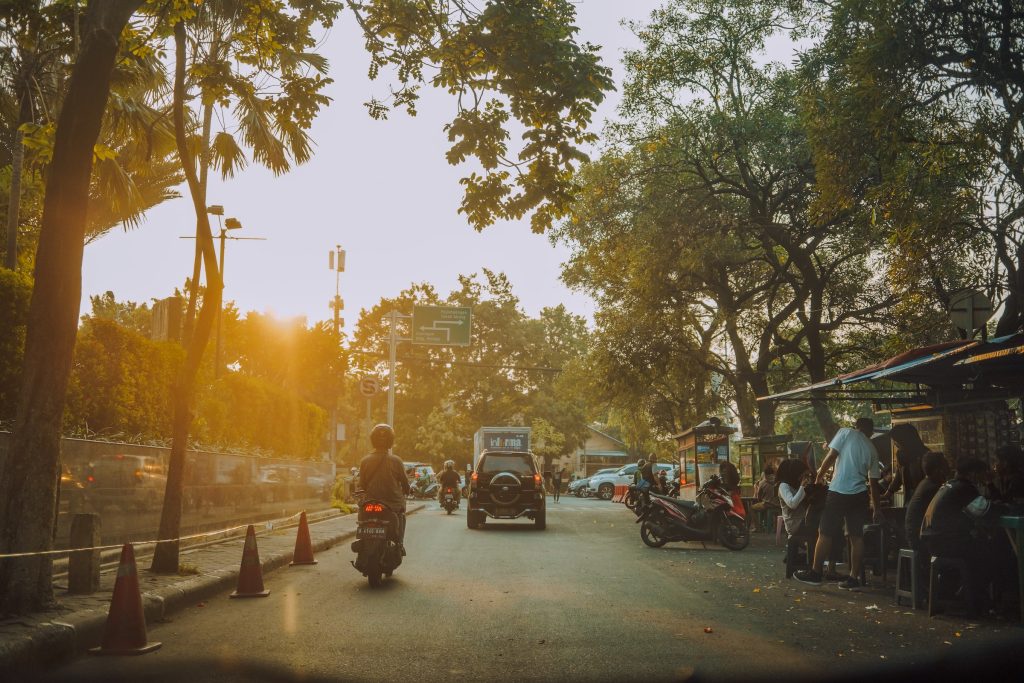
Jakarta’s Sinking Shorelines: The Silent Catalyst for Early Marriages Amid Climate Crisis
JAKARTA – Amid the cacophony of a waking city, sisters Janah and Jaroh, like many women in Jakarta’s northern Kalibaru neighborhood, stand on the rapidly receding coast, hoping for a favorable haul from the returning fishing boats. With the colossal silhouette of the New Priok Container Terminal One as a backdrop, their day-to-day struggles intertwine with the larger narrative of climate change, urban pressures, and societal norms.
In the heart of Indonesia, on the ever-eroding shorelines of Jakarta, a subtler, more insidious consequence of environmental decline emerges: the rise in child marriages in impoverished fishing communities.
Between Livelihood and Tradition
While marriage under 18 is recognized as gender-based violence by the UN, it remains a stark reality in areas facing socio-economic challenges. In communities like Kalibaru, declining fish populations, inflated market prices, and environmental degradation push families to resort to child marriages, viewing it as an avenue to alleviate financial burdens.
This was the fate of Janah, now 23, married off at 16. Similarly, Jaroh, her younger sister, faced the same tradition. The story isn’t theirs alone. Siti, another resident, recalls her marriage at 15. “We had no other options,” she expressed somberly. “When a family loses its patriarch, the pressure falls on the young daughters to marry and support.”
Despite Indonesia raising the legal marriage age to 19, UNICEF highlighted in 2020 that one in nine Indonesian women between 20-24 had been married before 18. Concerns grow amidst speculations of the pandemic potentially exacerbating this trend.
Environmental Triggers
Jakarta, sinking at an alarming rate of up to 15 cm annually, stands as the fastest subsiding megacity globally. While unregulated groundwater extraction plays a significant role, climate-related factors add to the turmoil, especially for those whose lives revolve around the sea.
Increased sea acidification, rising temperatures, and other climate change impacts pose severe threats to fish stocks, further pressuring communities like Kalibaru. As reported by Mongabay, overfishing forces fishers to venture further from Java Island’s shores, intensifying the hardships of families dependent on the catch.
Climate Change and Early Marriages: The Interplay
Connections between environmental stressors and gender-based violence aren’t new. Cases in Ethiopia and Sudan have shown increased tendencies to trade girls for livestock during heatwaves or droughts. However, the intertwining narratives of Janah, Jaroh, and many like them bring to light the potential role of climate change in hastening child marriages in climate-vulnerable coastal regions.
The daily routine of Janah and Jaroh mirrors a deeper societal issue. The practice of early marriages, passed down through generations, finds new reasons to persist amid the climate crisis. As these women work tirelessly by the shore, they also bring their children, hinting at the unbroken cycle that might continue amidst the changing climate backdrop.
A Looming Crisis Amid Waves and Traditions
Jakarta’s predicament showcases how multifaceted challenges, from over-extraction of resources and overfishing to changing climate patterns, can subtly influence societal practices like early marriage.
As the world grapples with visible climate catastrophes, the silent societal transformations occurring in regions like Jakarta’s coast warrant equal attention. The tale of its sinking neighborhoods and the resulting socio-economic repercussions serves as a stark reminder: the ripples of climate change spread far and wide, affecting layers of society in ways we might not always directly perceive.
©eco-guardians.org